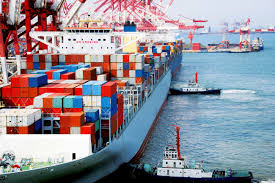Treasury, State Department and Coast Guard Issue Advisory and Guidance on Maritime Industry Deceptive Shipping Practices

In response to an increase in deceptive shipping practices, on May 14, 2020, the State Department, Treasury Department and the Coast Guard issued a warning to the maritime industry, and those involved in the energy and metals sectors, concerning deceptive shipping practices used to evade sanctions. The focus of concerns appears to be actors seeking to circumvent sanctions against Iran, North Korea and Syria.
The lengthy and detailed Advisory reflects growing frustration with companies that are able to circumvent OFAC sanctions programs. Compliance officers have to be vigilant in this area to ensure that appropriate steps are taken to monitor supply chain and other high-risk activities.

The Advisory includes a basic list of best practices to mitigate exposure to sanctions risks. OFAC has issued advisories on shipping risks with respect to specific sanctions programs, and the current advisory consolidates and expands on prior guidance. The Advisory includes common deceptive shipping practices used with respect to countries like Iran, North Korea, and Syria.
The Advisory emphasizes risks in the supply chains for crude oil, refined petroleum, petrochemicals, steel, iron, aluminum, copper, sand, and coal. For the maritime industry, the Advisory increases sanctions compliance expectations to detect deceptive shipping practices and schemes to circumvent sanctions programs.
The Advisory includes a number of due diligence requirements:
Vessel Ownership: While sanctions compliance programs already are required to conduct basic due diligence of vessel owners, the Advisory includes recommendations that such due diligence should include maintaining the names, passport ID numbers, email addresses and copies of beneficial ownership documentation. One specific area to focus on is prior transfer of ownership among companies with the same beneficial owner.

Supply Chain: The Advisory suggests that exporting companies should enhance their controls to verify that commodities do not originate from or transit through sanctioned countries, especially when ships conduct ship-to-ship transfers (“STS”) of cargo. In such cases, exporting companies should require and review shipping documentation, including all bills of lading to confirm chain of custody, and each step in the transit of the goods.
Automatic Identification System Manipulation (“AIS”): AIS is the system used to transmit and record a vessel’s navigation data. Vessels are typically required to maintain AIS operation except for limited situations. To avoid detection, vessels seeking to evade sanctions will disable a vessel’s AIS transponders. As part of a due diligence review of a vessel owner, companies should include review of a vessel’s AIS history to determine whether the vessel has gone “dark” and the surrounding circumstances.
Ship-to-Ship Due Diligence: While legitimate vessel operations include STS transfers, malign actors often use STS transfers as a way to escape port regulation and documentation requirements. If a shipping plan includes an STS transfer, the exporting company should verify the STS transfer operation by requesting the receiving vessel’s name, flag, IMO number, and AIS status (operational v. non-operational).

Contractual Compliance Certifications: To mitigate sanctions risks, companies should add contractual language in maritime contracts to protect against disabling AIS, prohibit transfer of cargo to vessels that do not transmit AIS or have an unsatisfactory AIS history.















